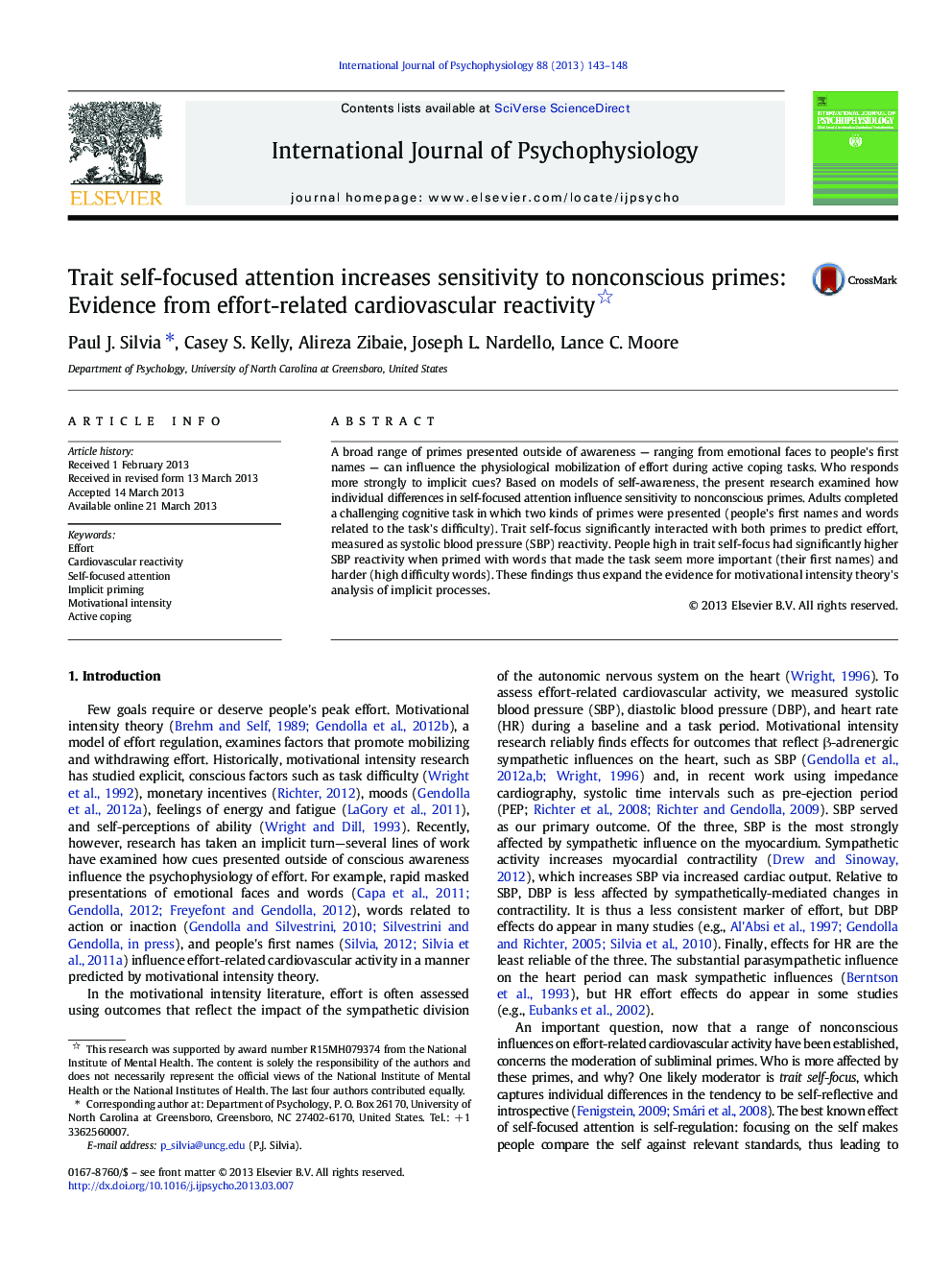| کد مقاله | کد نشریه | سال انتشار | مقاله انگلیسی | نسخه تمام متن |
|---|---|---|---|---|
| 929806 | 1474431 | 2013 | 6 صفحه PDF | دانلود رایگان |

• Implicit cues can influence how people regulate effort.
• People high in trait self-focus should be more sensitive to implicit cues.
• People were presented implicit difficulty primes and first names during a task.
• Effort was measured using cardiovascular reactivity.
• Trait self-focus moderated the primes' effect on systolic BP reactivity.
A broad range of primes presented outside of awareness — ranging from emotional faces to people's first names — can influence the physiological mobilization of effort during active coping tasks. Who responds more strongly to implicit cues? Based on models of self-awareness, the present research examined how individual differences in self-focused attention influence sensitivity to nonconscious primes. Adults completed a challenging cognitive task in which two kinds of primes were presented (people's first names and words related to the task's difficulty). Trait self-focus significantly interacted with both primes to predict effort, measured as systolic blood pressure (SBP) reactivity. People high in trait self-focus had significantly higher SBP reactivity when primed with words that made the task seem more important (their first names) and harder (high difficulty words). These findings thus expand the evidence for motivational intensity theory's analysis of implicit processes.
Journal: International Journal of Psychophysiology - Volume 88, Issue 2, May 2013, Pages 143–148